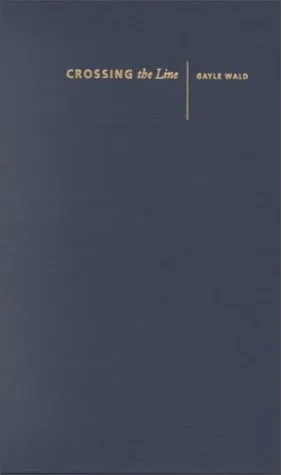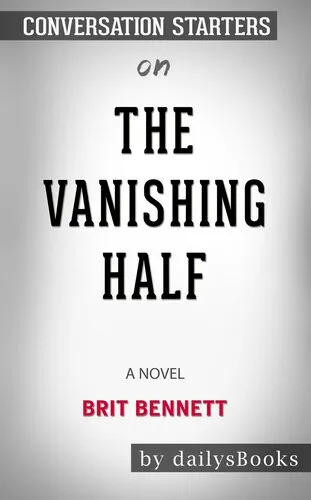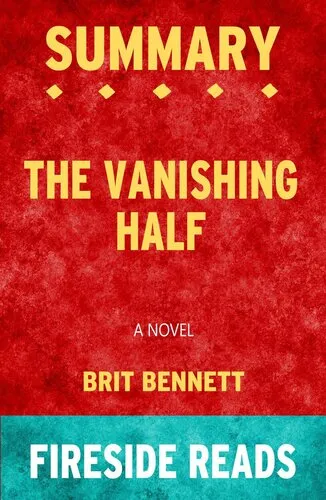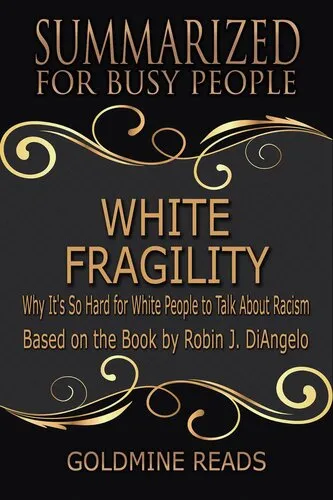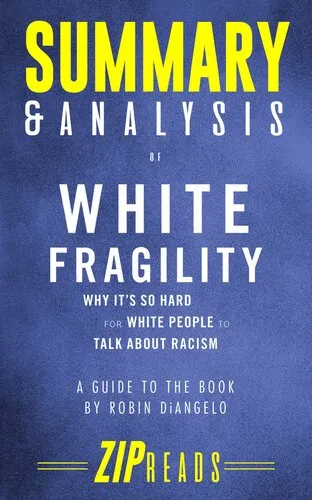Crossing the Line: Racial Passing in Twentieth-Century U.S. Literature and Culture
4.3
Reviews from our users

You Can Ask your questions from this book's AI after Login
Each download or ask from book AI costs 2 points. To earn more free points, please visit the Points Guide Page and complete some valuable actions.Related Refrences:
Persian Summary
Introduction
"Crossing the Line: Racial Passing in Twentieth-Century U.S. Literature and Culture" by Gayle Wald explores the complexities and nuances of racial identity and the phenomenon of racial passing within the context of American literature and culture. The book delves into the historical, cultural, and literary interpretations of individuals who crossed societal boundaries of race, questioning the constructs of race and identity through an in-depth examination of relevant texts and cultural narratives.
Detailed Summary of the Book
The concept of racial passing is fraught with tension and intrigue, as it involves individuals of one racial identity being accepted, either deliberately or inadvertently, as another. In "Crossing the Line," Wald provides a comprehensive analysis of how this phenomenon is depicted in 20th-century literature and culture. By examining novels, films, and other cultural artifacts, the book highlights how racial passing served as both an act of resistance and a reflection of the oppressive racial categorizations in American society.
Spanning from the Harlem Renaissance to late 20th-century contemporary narratives, Wald investigates seminal works and the cultural shifts they reveal. The book scrutinizes how authors like Nella Larsen and James Weldon Johnson crafted stories that encapsulate the perils and ambiguities of racial passing. Furthermore, Wald contextualizes these stories within historical events and ideologies, providing a backdrop that enhances the understanding of the societal pressures influencing these personal and collective narratives.
Key Takeaways
- Racial passing is a powerful tool for critiquing racial classifications and the limitations they impose on identity formation.
- Literature serves as a significant repository for exploring the tensions of race, identity, and assimilation within American culture.
- Storytelling, both in literature and film, provides insights into the personal struggles individuals face when confronting social hierarchies and cultural expectations.
- Historical contexts profoundly influence literary narratives and the portrayal of racial identity, highlighting the enduring impact of racial ideologies in the United States.
Famous Quotes from the Book
"The act of passing disrupts the imposed simplicity of racial binaries, revealing the complex tapestry of identity that defies easy classification."
"In the shadow of the color line, passing narratives illuminate society's hidden fears and desires surrounding racial purity and belonging."
Why This Book Matters
"Crossing the Line" offers crucial insights into the fabric of American cultural and literary history. At a time when discussions of race and identity remain at the forefront of societal discourse, Wald's exploration of racial passing provides a historical lens through which current debates can be understood and analyzed. The book underscores the persistent issues surrounding race in America and invites readers to consider how literature not only reflects these issues but also engages with them critically.
Moreover, Wald's examination challenges readers to rethink the boundaries of race and identity, encouraging a more nuanced understanding of what it means to navigate the complexities of identity in a society often dictated by clear-cut racial divisions. By engaging with the narratives of those who have navigated these boundaries, "Crossing the Line" advocates for a deeper recognition of the multifaceted nature of racial identity.
Free Direct Download
You Can Download this book after Login
Accessing books through legal platforms and public libraries not only supports the rights of authors and publishers but also contributes to the sustainability of reading culture. Before downloading, please take a moment to consider these options.
Find this book on other platforms:
WorldCat helps you find books in libraries worldwide.
See ratings, reviews, and discussions on Goodreads.
Find and buy rare or used books on AbeBooks.
1421
بازدید4.3
امتیاز0
نظر98%
رضایتReviews:
4.3
Based on 0 users review
Questions & Answers
Ask questions about this book or help others by answering
No questions yet. Be the first to ask!
